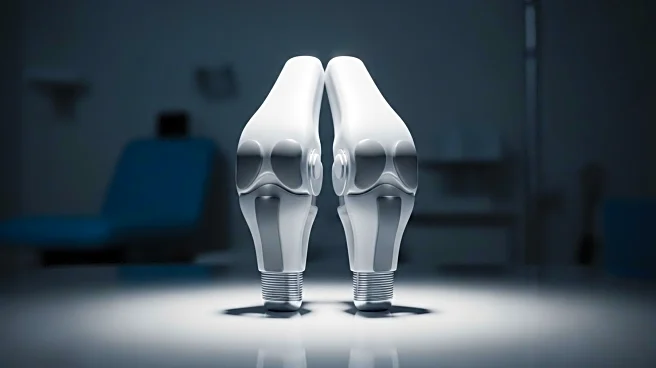What's Happening?
Orthopedics firm Exactech has agreed to an $8 million settlement to resolve allegations of violating the federal False Claims Act. The company was accused of knowingly selling defective knee implants, which failed prematurely at a higher than acceptable rate. Despite being aware of the defects, Exactech continued to sell these components and submitted claims for payment to Medicare, Medicaid, and the U.S. Department of Veterans Affairs. The settlement was approved by the U.S. Bankruptcy Court for the District of Delaware as part of Exactech's Chapter 11 bankruptcy proceedings. The company is currently undergoing restructuring and asset sales to an investor group.
Why It's Important?
The settlement underscores the importance of accountability in the medical device industry, particularly concerning patient safety. Exactech's actions affected public health programs like Medicare and Medicaid, highlighting the potential financial impact on government resources. The case serves as a reminder of the critical need for transparency and prompt action when defects are identified in medical devices. It also reflects the ongoing scrutiny and regulatory challenges faced by companies in the healthcare sector, which can lead to significant financial and reputational consequences.
What's Next?
Exactech is in the process of restructuring and selling its assets to investment firms Strategic Value Partners, Stellex Capital Management, and Greywolf Capital Management. The completion of these transactions is expected in the coming weeks. The company has also appointed a new CEO and chief medical officer as part of its efforts to stabilize operations and address past issues. The settlement may lead to increased regulatory oversight and changes in industry practices to prevent similar occurrences in the future.
Beyond the Headlines
The case raises ethical questions about corporate responsibility and the prioritization of profit over patient safety. It also highlights the legal implications of failing to address known defects in medical products. The settlement could influence future legal standards and practices within the medical device industry, potentially leading to stricter regulations and more rigorous compliance requirements.










